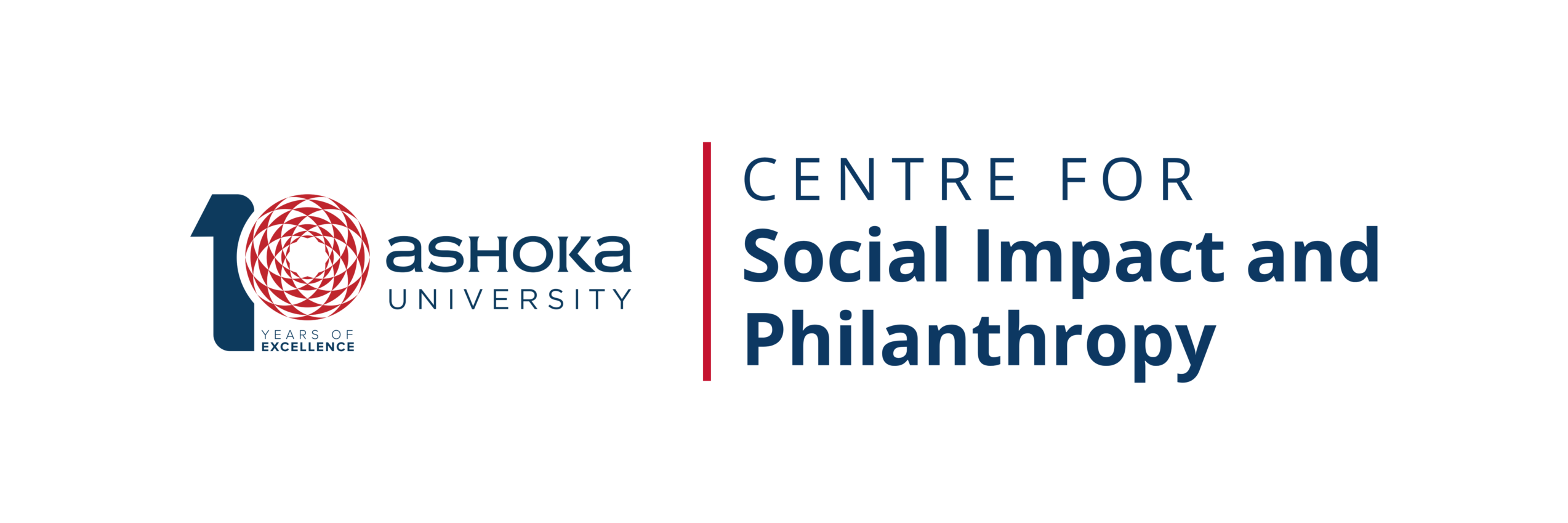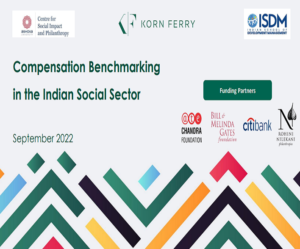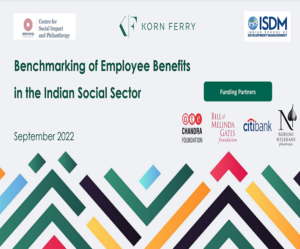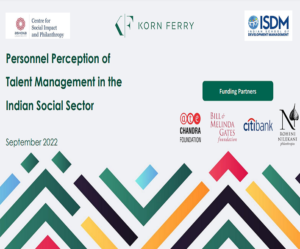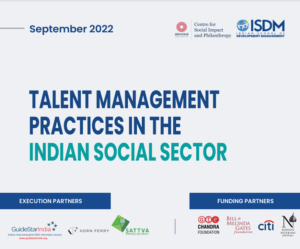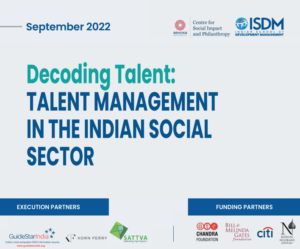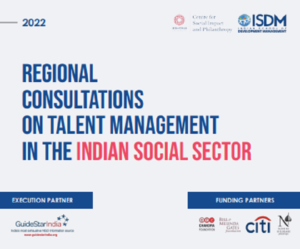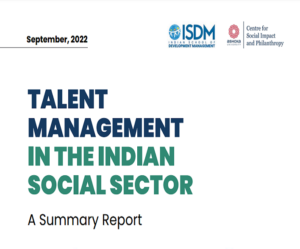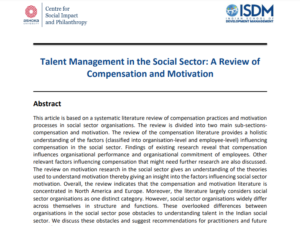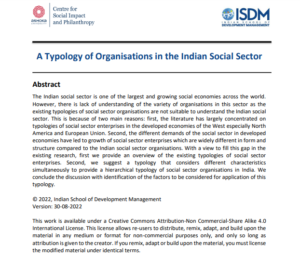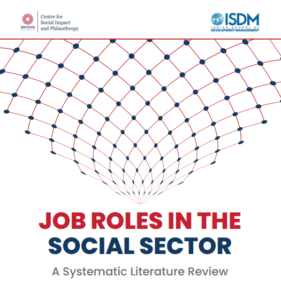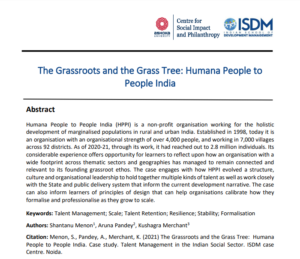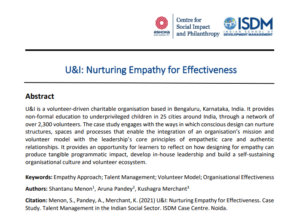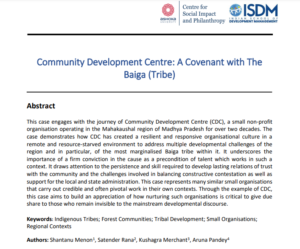About the Study
The Indian development sector is one of the world’s largest and most active social economies. Identifying and retaining organisational talent remains a significant challenge affecting the growth, scale, and capacity of social sector organisations. Emergent issues related to talent and leadership in the sector have been partly addressed by a few studies that have focused on select types of organisations or talent segments in the sector. However, there was a need for exhaustive research on talent management (including structures, policies, process for management and compensation of talent) which could potentially guide the relevant stakeholders, including non-profit organisations, foundations, donors, CSRs, and corporates, in strategic decision-making. To address the existing knowledge gap, the Centre for Social Impact and Philanthropy (CSIP), along with the Indian School of Development Management (ISDM), undertook this study titled “Talent Management in the Indian Social Sector.”
The study aimed to enable civil society organisations, philanthropists, foundations, and the development ecosystem to create a conducive environment to attract, nurture and grow talent in the Indian social sector. In particular, the goals of the study are to:
- Map the current talent management and compensation practices in the sector
- Draw attention to critical knowledge gaps on talent management and compensation practices in the social impact sector.
- Provide a set of actionable recommendations to key stakeholders of the social impact sector
The study comprehensively covered organisational and personnel data and perspectives on various aspects of talent management. Resultantly, it produced a number of sector-level reports( on compensation, benefits, perception, TM practices and motivation), organisation-specific case-lets and seminal pieces on literature reviews. These can be accessed below.
Reports
Compensation Benchmarking in the Indian Social Sector Report
This report presents the key findings from the study on compensation benchmarking in the Indian social sector. Drawing from a sample of 75 Indian social purpose organisations(SPOs), it provides an insight into the existing compensation practices across a typology of roles and SPOs. It also presents the status of social sector compensation as compared to the general industry compensation.
Benchmarking of Employee Benefits in the Indian Social Sector Report
This report documents the key findings from the study on benefits benchmarking in the Indian social sector. It draws from a sample of 59 organisations to provide a comprehensive understanding of the employee benefits being provided by Indian social purpose organisations. Importantly, it also compares social sector benefits with those being provided by general industry.
Personnel Perception of Talent Management in the Indian Social Sector Report
Drawing from a study with 92 social sector personnel, this report documents the perception of personnel towards their organisations as well as the social sector at large. It presents a holistic understanding of the perception of employees about their sense of affiliation; compensation and benefits received; and work structure in their organisations.
Talent Management Practices in the Indian Social Sector
This report explores talent management practices and drivers of talent motivation which operate within the social sector. The report also outlines the talent investments made by organisations, and captures the factors driving talent to work in the social sector.
Decoding Talent: Talent Management in the Indian Social Sector
This report triangulates the major findings and evidence from the comprehensive study on Talent Management practices. The report captures trends from the research efforts to benchmark compensation as well as to study the drivers of motivation and talent management practices followed in organisations from the Indian social sector.
Regional Consultations on Talent Management in the Indian Social Sector
The report presents findings from consultations with organisational leaders from six different regions of the country on key aspects of talent management. The report outlines the diversity of talent management practices in SPOs, while also aiming to develop and nurture shared perspectives on how SPOs define talent, and outline some key driving points that influence and motivate organisational talent in the ecosystem.
Talent Management in the Indian Social Sector: A Summary Report
This report captures insights emerging from all components of the talent management study, its methodology, its modules and the key reports that the study yielded. The summary report is a great place to begin your exploratory journey into the detailed insights that the study has brought forward.
Literature Review
A Typology of Organisations in the Indian Social Sector
This paper provides an overview of the existing typologies of social sector enterprises. It also suggests a typology that considers different characteristics simultaneously to provide a hierarchical typology of social sector organisations in India. We conclude the discussion with identification of the factors to be considered for application of this typology.
Job Roles In the Social Sector
“This systematic literature review paper explores the various trends in publication on social sector roles, including the period of publications; geographies covered in the sample; methodology adopted; publication type; and types of organisations covered. It provides an analytical summary of existing literature on four key aspects of job roles in the social sector: ‘roles in the social sector’ (job titles, functions and competencies); ‘career paths of the roles’ (career paths and trajectories); ‘complexity of roles’ (risks, motivations, experience and gender differential); and ‘compensation practices in the social sector’.”
